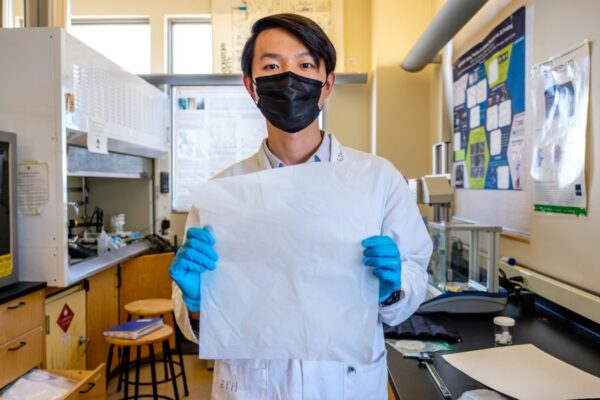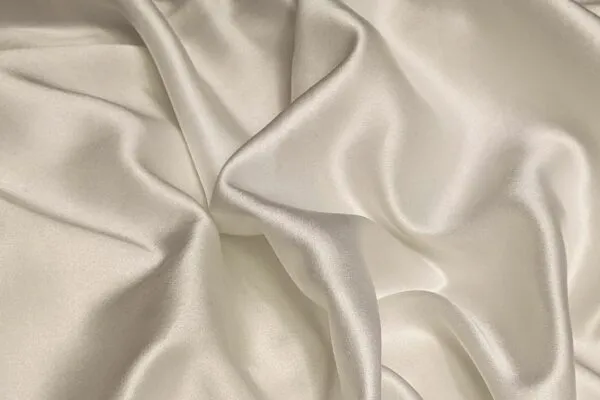Biodegradable Food Containers Made from Plant Fibers Could Replace Single-Use Takeout Utensils
The fight against plastic pollution is much real and imperative if the planet and its inhabitants are to survive. The non-degradable material has been polluting the earth, and all living species as well. Many people are trying to invent eco-friendly alternatives to various plastic items dominating different aspects of human life. Recently, researchers have developed biodegradable food containers made from plant fibers – sugarcane and bamboo fibers, to replace the single-use takeout packages.
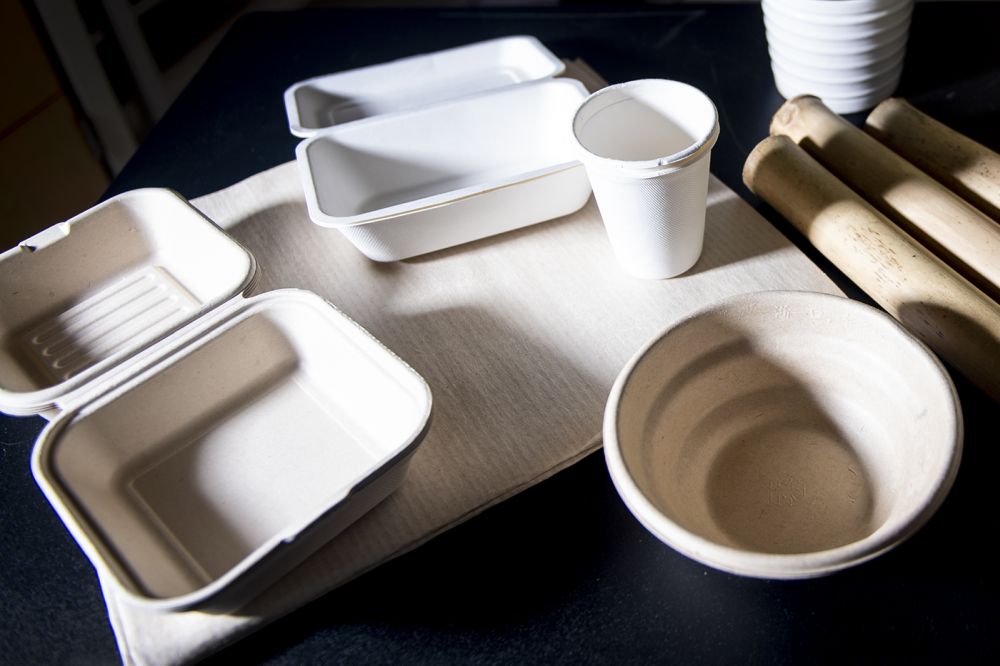
Image: Ruby Wallau/Northeastern University
Hongli (Julie) Zhu, an assistant professor of mechanical and industrial engineering at Northeastern University, and her research team describe their creation as “turning a sugarcane byproduct into a sustainable, compostable, and inexpensive material that’s durable enough to serve as tableware, and that biodegrades within 60 days.”
When Zhu first came to the United States, she was bothered by the prevalence of single-use plastic containers at supermarkets and restaurants. She felt that the material was cheap and convenient, but came at the expense of the environment – as plastic doesn’t decompose over time, it gets broken into smaller pieces that end up polluting oceans and rivers. Therefore, she decided to create a better alternative to the single-use plastic utensils.
Also Read: Biomaterial Made From Banana Leaves can Replace Single-Use Plastic
Earlier Zhu wanted to use the wood pulp but realized it would be an environmentally intensive process, so she sought a sustainable solution. While examining the ingredients of her son’s candies, she realized that sugar is a natural, mass-produced material with no synthetic chemicals.
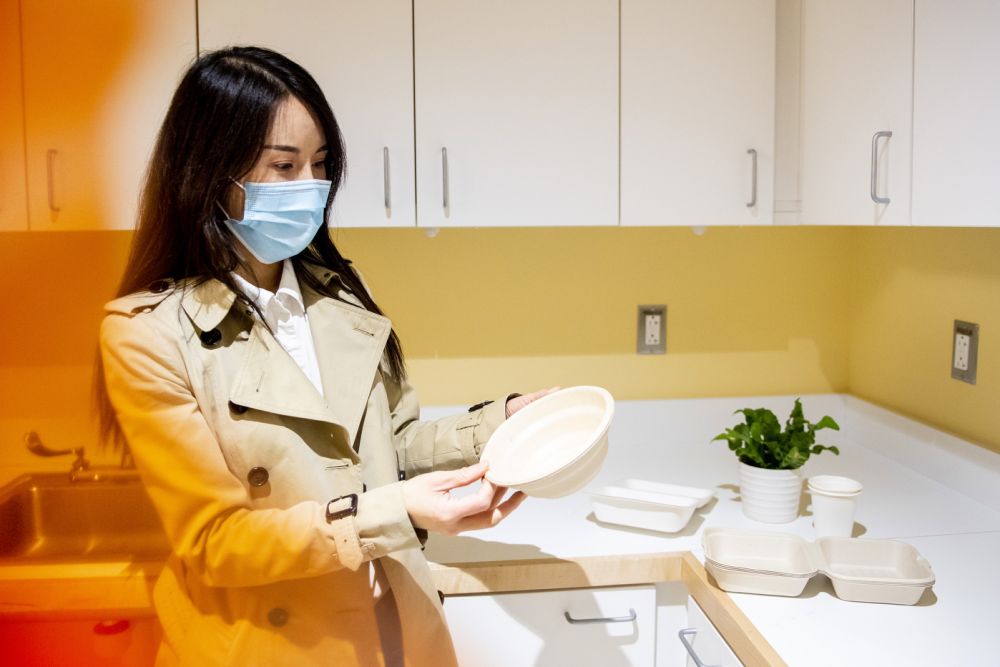
Image: Ruby Wallau/Northeastern University
She decided to collect the pulp byproduct of sugarcane production and used it to create a sustainable alternative to plastic. Sugarcane pulpis one of the most established food waste products in the world. It is safe to consume and is naturally biodegradable. But its fibers are comparatively short and are relatively fragile.
To enhance the mechanical strength of the material, Zhu and her research team mixed it with bamboo fibers. The final result is an entirely natural and biodegradable material that is adequately durable to be shaped into containers strong enough to hold food and liquids.
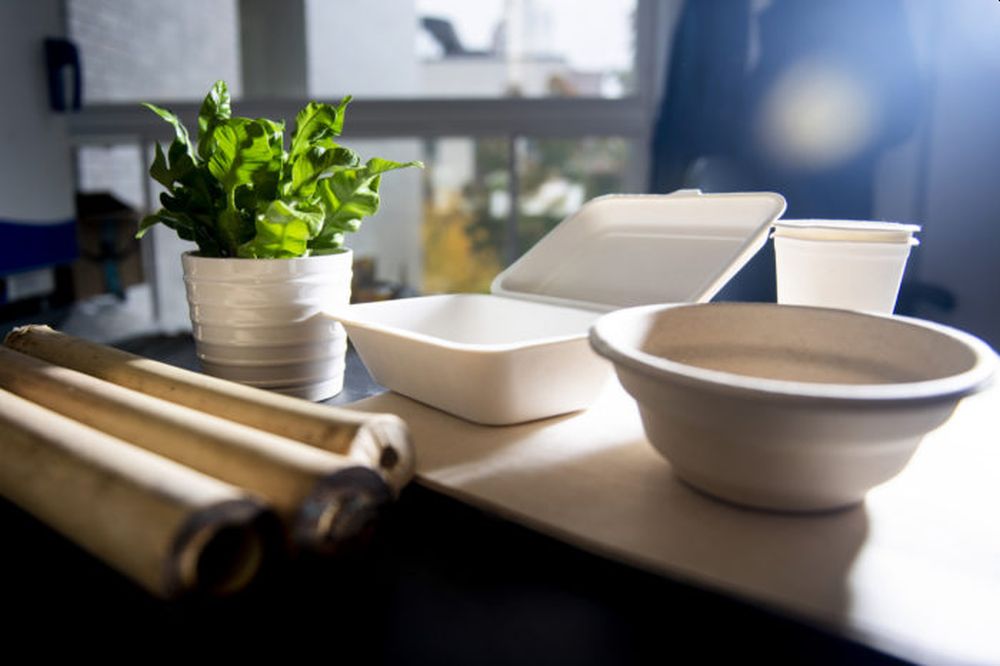
Image: Ruby Wallau/Northeastern University
To test the decomposition process of the material over time, Zhu and her team buried a container made of the new material and checked on it every 10 days. They discovered that the material had begun to break down after 30 days and disintegrated almost entirely after 60 days.
Apparently, Zhu has been receiving requests from sugarcane production companies to collaborate with her team. She has filed for a patent and will work with industry partners to begin the commercialization of the product.
If such technology could be applied to other plastic items, the world would be able to tackle its huge plastic pollution problem.

